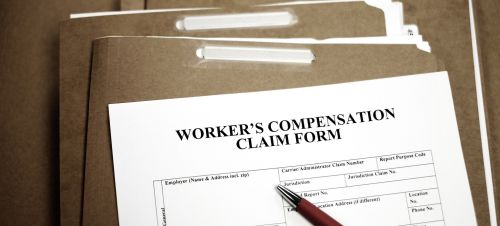



The Wisconsin worker’s compensation system provides benefits for wage loss, medical expenses, and permanent disability. These benefits help alleviate the financial burden that can accompany time off work, medical treatment for the injury, the cost of rehabilitation, and permanent physical damage to a body part or loss of earning capacity. However, there are limitations to what the Wisconsin worker’s compensation system can do. Understanding this can help you know what to expect in your claim for benefits. In particular, there are few provisions in Wisconsin’s worker’s compensation law to force anyone to do anything or not do anything in real time.
Kingree Law Firm is a premier worker’s compensation law firm in Wisconsin. Led by founding attorney Luke Kingree, our team of Wisconsin worker’s compensation attorneys exclusively represents injured workers in claims for worker’s comp benefits. We primarily handle cases outside of the Milwaukee area and have earned a reputation as one of the top worker’s comp firms in the state.
The Wisconsin worker’s compensation system was established in 1911 and represents a compromise between employers and employees that minimizes risk after a workplace injury. In exchange for defined benefits and a no-fault administrative system, workers gave up the right to bring civil personal injury lawsuits against employers or coworkers unless their injuries resulted from an intentional assault.
The Wisconsin worker’s compensation system provides vital protection for injured workers. It ensures access to necessary medical treatment and financial support after a workplace accident or occupational injury. If you were injured or developed a condition due to your work, you can claim the costs of medical care and wage loss while you heal. Because you do not need to prove negligence, you can still receive worker’s comp benefits regardless of who was at fault for causing your injuries.
Despite the benefits of a defined, no-fault administrative system, there are limits to what the Wisconsin worker’s compensation system can do and the benefits it can provide. The system is specifically designed not to make a person whole, deliver justice, or be “fair.”
Worker’s compensation benefits only cover medical expenses, lost wages, and certain disability benefits. Worker’s comp does not pay for pain and suffering, emotional distress, or other non-economic losses that may come from the work injury.
An injured worker is only eligible to receive a portion of their lost wages while they recover from a work injury and their doctor’s restrictions either prevent or limit their ability to return to work. The extent and amount of compensation for lost wages varies based on the doctor’s restrictions, the employer’s ability to bring you back to work within the assigned restrictions, and the worker’s prior earnings history.
In most cases, worker’s compensation benefits are your exclusive remedy for workplace injuries. You cannot sue your employer for negligence, even if they were at fault.
Although Wisconsin has a six (6) year statute of limitations for single-event injuries and a twelve (12) year statute of limitations for occupational injuries occurring over time, there are shorter and less-often used limitations. There is a 30-day notice requirement for you to inform your employer of a work injury. There is a 2-year limitation for you to pursue worker’s compensation benefits when your claim has accrued and you know or reasonably should know that your medical condition is work-related. However, you should always inform your employer right away. A delay of even a couple of days can often result in denial of your claim for worker’s comp benefits on the basis of a “factual dispute.” In other words, even if your medical records demonstrate that you sustained a work injury, your employer and its insurance carrier might not be factually sure that you injured yourself at work and aren’t fabricating a work injury story.
At any point, employers and their insurance carriers can deny your claim for worker’s compensation benefits using any one of many different types of defenses. Once a denial occurs, it is a common misconception that an attorney can force insurance companies to reinstate benefits quickly, force employers to return injured workers to work, prevent termination, and otherwise right perceived wrongs in real time. Wisconsin’s worker’s compensation laws do not contain provisions enabling attorneys to force anyone to do anything.
Successfully presenting your case in front of an administrative law judge at a hearing is the only way to force a carrier to pay if your claim is denied. However, in Wisconsin, there is a months-long wait time between requesting a hearing and a hearing actually being set. If the case proceeds to a hearing, the judge has 90 days to issue a written decision, so the time between requesting a hearing and receiving a decision is often at least 9 months, if not much longer. In addition, hearings are typically only requested after a worker has completed treatment using their health insurance coverage. This is because the extent of compensation available depends on the injured worker’s wage loss during the healing period, the amount of medical expenses, the worker’s PPD rating, permanent restrictions, and permanent job status, all of which need to be known because they determine the claims that will be subject to settlement or a hearing.
Understanding the limits of the Wisconsin worker’s compensation system helps injured workers avoid incorrect assumptions and know what to expect in their claim for worker’s compensation benefits. If you suffered a work injury that resulted in significant lost time from work, permanent disability, permanent wage loss, joint replacement, or if your claim for worker’s compensation benefits has been denied, Kingree Law Firm is here to help. Our team is dedicated to providing high-quality legal representation in Wisconsin worker’s comp cases.
Contact Kingree Law Firm today to schedule an appointment to discuss your situation and how we can help.
© 2025 Kingree Law Firm, S.C.
| View Our Disclaimer | Privacy Policy
Law Firm Website Design by The Modern Firm